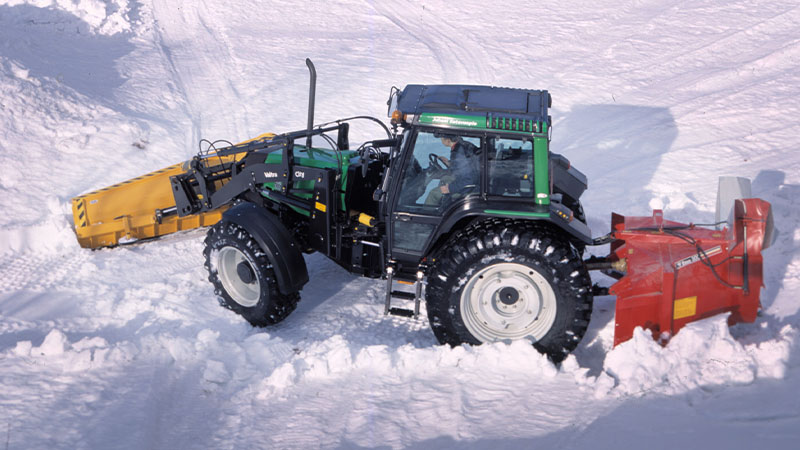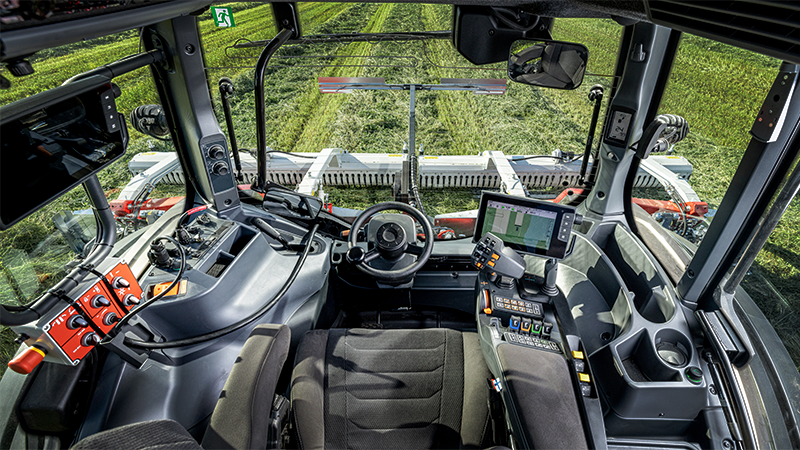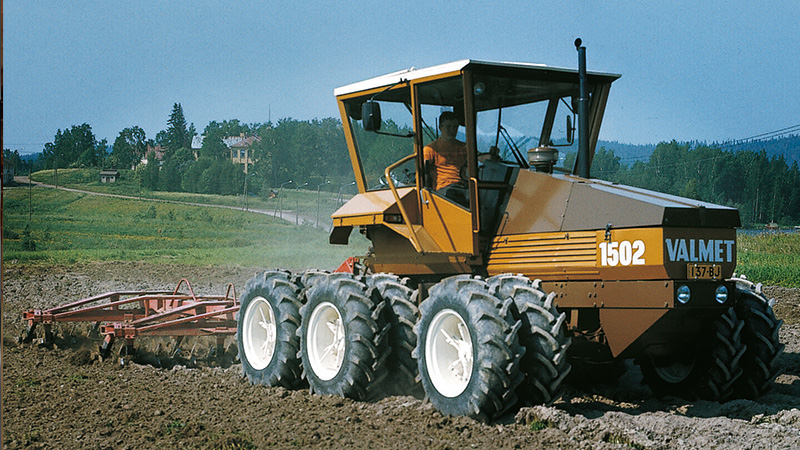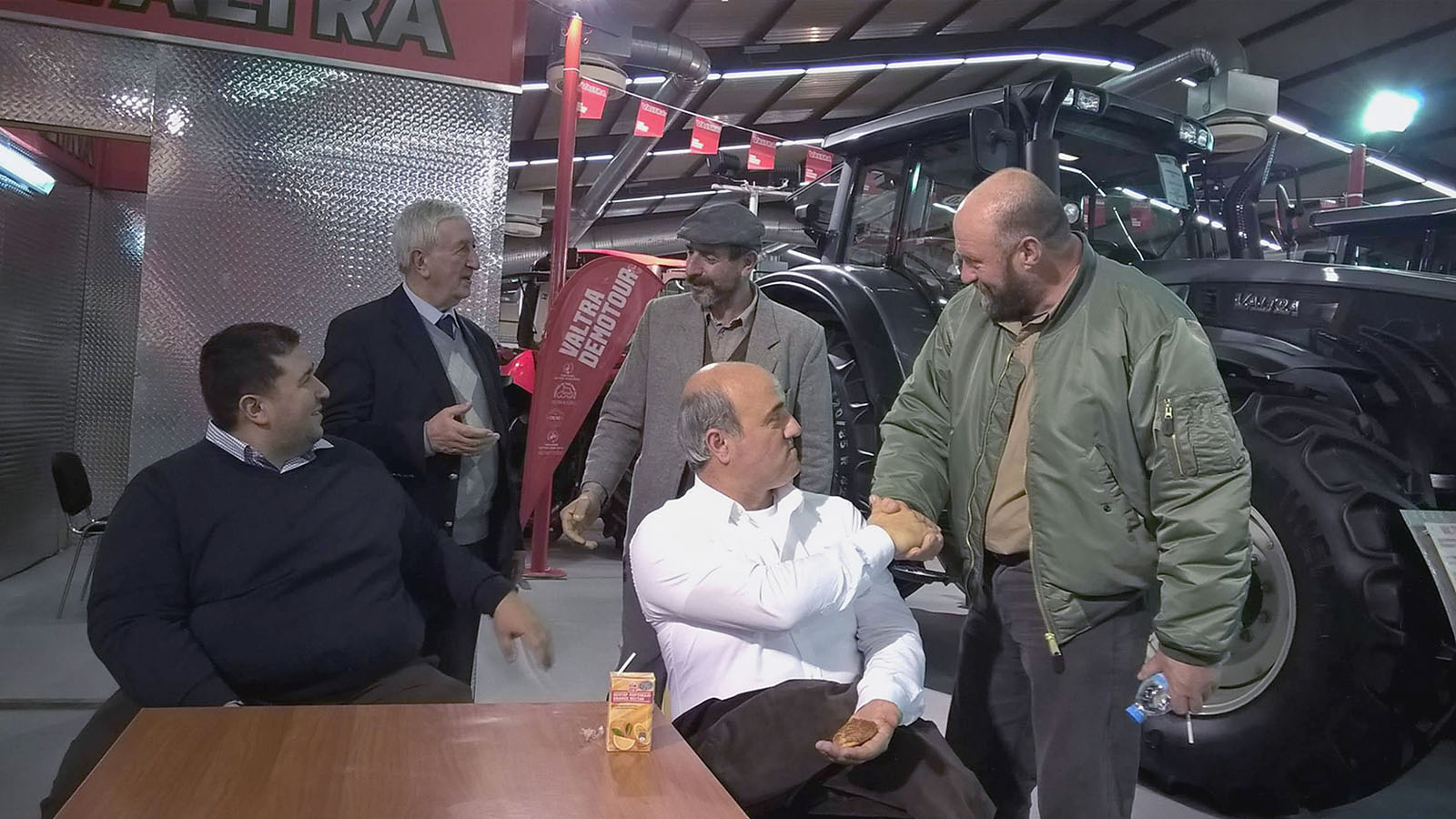The Dutch sometimes refer to their country as the sixth Nordic because of its egalitarian society and free way of life. As an agricultural country, however, it is even more developed than the “other” Nordics, adopting all the latest technology without delay. As a result, Volvo tractors gained an established position in the country. When Valmet took over Volvo’s tractor operations in the early 1980s, Kuiken N.V. was the importer for the Volvo BM in the Netherlands. The company got off to such a fast start that it even managed to import a few yellow Valmets before the introduction of the 05 Series.
In the late 1980s, the Dutch importer and dealers strongly communicated that the Nordic 05 series was not the tractor to conquer Central Europe. So hopes were high when the 8100 model was presented at the end of 1990, and busloads of dealers came to the Elmia agriculture fair to see it. In the Swedish autumn, a special test drive was organised for the importer.
The reclamation of farmland from the sea reached huge proportions already in the 1930s, and additional areas were drained all the way up the ‘50s. To supply all the infrastructure construction work, Kuiken imported earth moving machinery. CEO H.B. Kuiken, however, was always interested in tractors and liked to recall that the company had started by selling agricultural machinery. And agriculture in the Dutch polders had indeed been finely tuned. The annual rent for the best hectares suitable for special cultivation could be the same as the purchase price for an hectare in Central Finland.
Still, bread has not always been easy to produce in the arms of the sea. Perhaps this inherent challenge created the Dutch character trait of being flexible and price-conscious merchants. You don't pay for unnecessary things, and once the price has been agreed upon after much haggling, only then do you start talking about discounts! In the early ‘90s, Kuiken had a centralised purchasing organisation that also handled tractors. When the Finnish seller had eventually dared to bring up his modest request for a price increase, the buyer slowly rolled a cigarette, lit it and then asked, looking straight in the eyes through the smoke: “How do you justify your demand?”
The Valtra importer has since changed, and smoking is no longer allowed in offices either. However, Holland is still a liberal country. You can see the relaxed attitude, for example, in the fact that tractors do not need to be registered, not even with the EU’s “Mother Regulation” – except if you go to work in a neighbouring country. Admittedly, a rapid change in this situation has been predicted for some years already.
The high appreciation of work – and its high cost – have brought high technology to agriculture. The furrows were straight even before GPS, and it has progressed continuously so that machine manufacturers have to make a real effort to meet the needs of customers. The Dutch dealer satisfies its customers by using specialised product and service providers. Everyone knows English in the Netherlands, so lessons and parts are sought wherever they are available.
In the ‘90s, importer Kuiken also took over responsibility for Belgium and Luxembourg. These countries already had old Valmet imports, but in practice quite small volumes. In the 2010s, sales of Valtra in the BeNeLux countries transferred from Kuiken to the Mechan Group, an importer known to AGCO. Operating in many European countries, Mechan has improved Valtra’s position as a whole and especially in Belgium. Of course, Dutch agriculture in particular represents a market economy at its purest, and tractor sales still vary a lot every year.
The BeNeLux countries cooperate a lot. The borders are open, and even before the euro the countries had a fixed mutual exchange rate. But that’s pretty much where the similarities end. Belgians like a simple and robust six-cylinder basic tractor, while the Dutch appreciate technology and a good power-to-weight ratio.
Text Timo Mattila Photo Valtra archive
